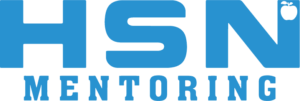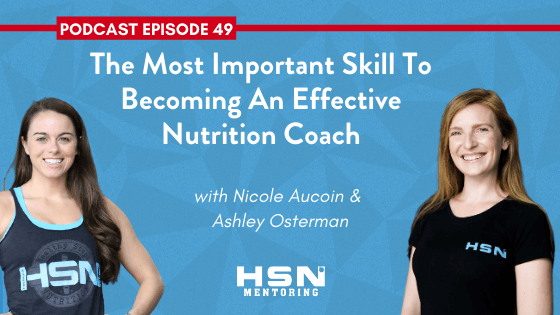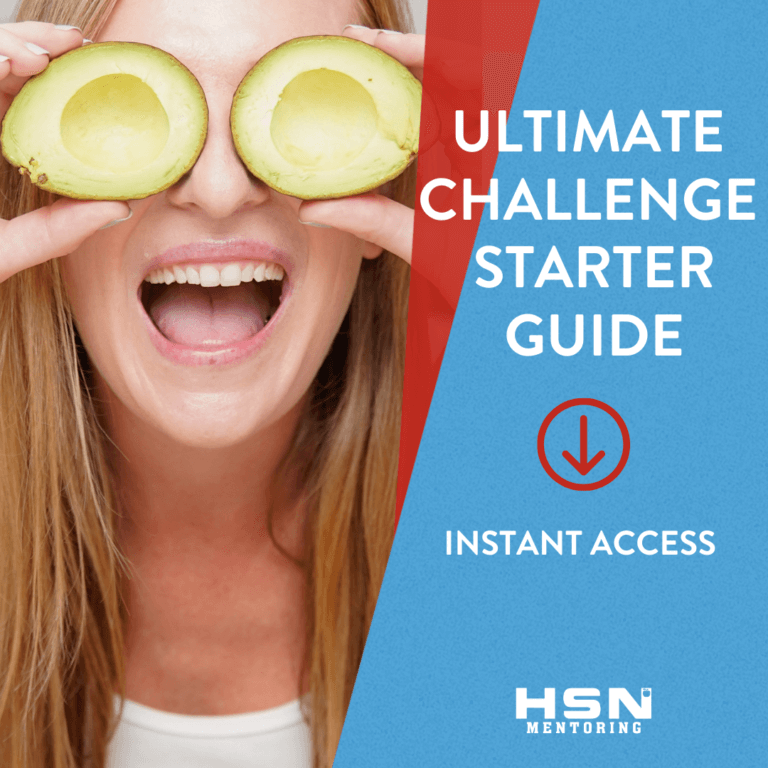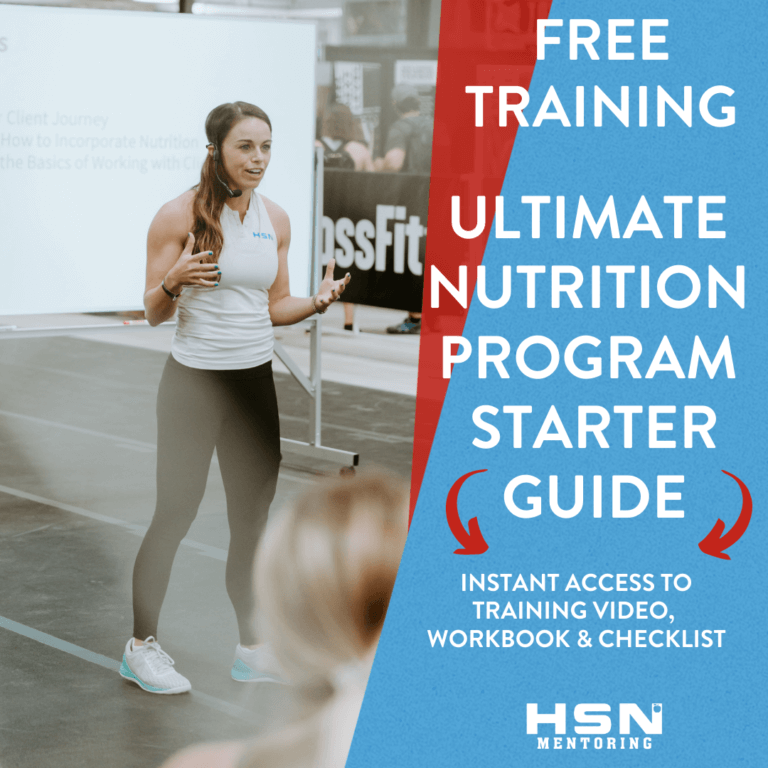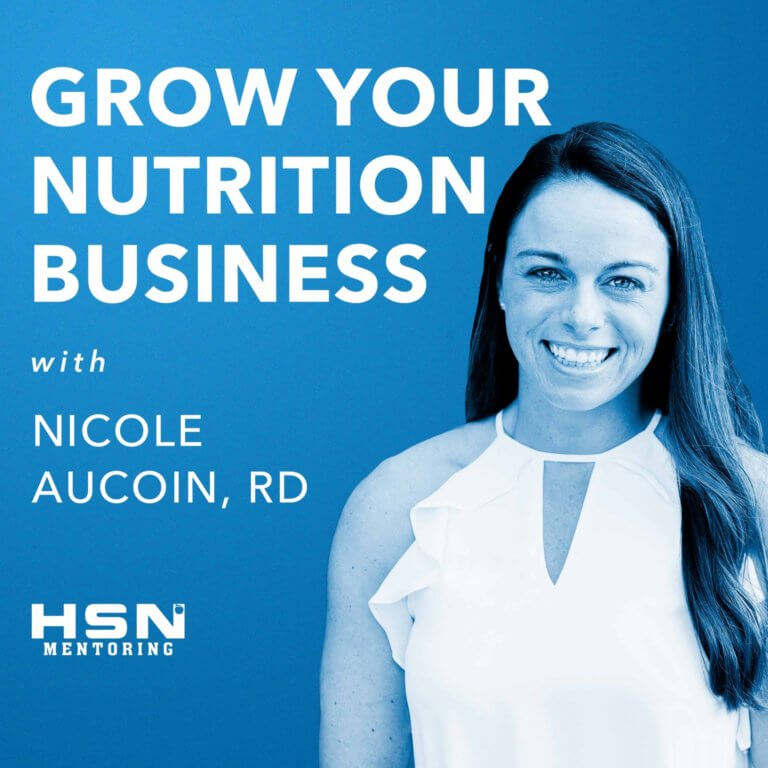If I told you that 70-80% of your professional success in life is related to one skill that had nothing to do with your actual profession, would you believe me?
Today, Ashley and I discuss one skill that makes good nutrition coaches become great nutrition coaches and truly make a difference in someone’s life. It’s called soft skills.
In this episode, we discuss:
- What are soft skills?
- Why are they important?
- How you improve them?
Additional FREE Help Related To
Building A Nutrition Program In A Gym
LISTEN: Inside The Nutrition Program At CrossFit Brighton & How Nutrition Coach, Darcie Helped Brent Lose 100 Pounds HERE
LISTEN: How To Find A Great Nutrition Coach In A CrossFit GymHERE
LISTEN: Nutrition Made Simple Podcast – CrossFit, Nutrition & Your Health HERE
HSN Mentoring Client Highlight: Meet Jocelyn & Barry Weidner, Owners of CrossFit Generation, How A 14-Year CrossFit Affiliate Changed Their Business Model To Make Nutrition Coaching The FoundationHERE
What The Challenge Guide Includes:
Planning Checklist
How To Structure Your Nutrition Challenge
How To Continue Your Nutrition Program Beyond A Challenge
Additional Resources To Plan A Successful Challenge All In One Place
Episode Transcript:
Nicole Aucoin (00:02):
Welcome back to The Grow Your Nutrition Business podcast. At Healthy Steps Nutrition, we believe something as fundamental as nutrition, shouldn’t be complicated. We help gym owners and coaches build successful nutrition businesses without reinventing the wheel.
Nicole Aucoin (00:19):
I’m your host, Nicole Aucoin, registered dietitian and founder of Healthy Steps Nutrition, CrossFit HSN, and HSN Mentoring. I’m also the author of The Basics of Nutrition Coaching Course, a standalone course that is also a CrossFit preferred course. In these episodes, I am going to teach you how to take one step at a time to build a successful nutrition program, where you finally feel confident talking about nutrition with your members and your communities.
Nicole Aucoin (00:52):
If I told you that 70 to 80% of your professional success in life was related to one skill that had nothing to do with the actual profession, would you believe me? Today, Ashley and I are discussing that one skill that makes good nutrition coaches become great nutrition coaches, and truly make a difference in someone’s life. We’ll get started with this episode on soft skills just after this message.
Nicole Aucoin (01:25):
Do you know that HSN Mentoring offers a turnkey solution for gym owners to build a comprehensive nutrition program? With 2021 right around the corner, now is the time to be thinking about revamping your nutrition program. If you are a gym owner who’s looking to build a nutrition program without reinventing the wheel, I want to talk to you. I’m going to give you a special invite to book a free call with me by visiting growyournutritionbusiness.com/podcast. Again, that’s growyournutritionbusiness.com/podcast. Enjoy this episode.
Nicole Aucoin (02:04):
Ashley Osterman, welcome back to The Grow Your Nutrition Business podcast.
Ashley Osterman (02:08):
Thank you so much, Nicole. Always a pleasure to be on.
Nicole Aucoin (02:11):
Today, we are talking about one of the most important things nutrition coaches need to develop to retain their clients: soft skills. What the heck are soft skills?
Ashley Osterman (02:25):
You could search online: what are the most important skills to have in your life and work? And guaranteed, you’ll probably find mention of soft skills. Soft skills, or people skills, interpersonal skills or human skills, could be other phrases, essentially referring to the same type of skills. But you asked a great question, Nicole, what exactly are soft skills?
Ashley Osterman (02:48):
I think that Wikipedia gives one of the most comprehensive definitions. They say that soft skills are a combination of people skills, social skills, communication skills, character or personality traits, attitudes, career attributes, social intelligence, and emotional intelligent quotients among others, that enable people to navigate their environment, work well with others, perform well and achieve their goals with completing hard skills.
Ashley Osterman (03:19):
So basically, they are your people skills; how you have relationships and interact and work with other people.
Nicole Aucoin (03:30):
Now, Ashley, the reason why we actually brought this up into the conversation with our nutrition coaches is, you and I and Jason were talking about what is the difference between nutrition coaches who retain their clients for three, four years and the nutrition coaches that don’t retain their clients after a three-month commitment. We know that lifestyle changes do not happen overnight and nutrition coaches really need to work with clients for the long haul to help them navigate life’s events. And if you’re not able to build that relationship and develop and have these soft skills, that’s going to be very tough for you to retain your clients.
Ashley Osterman (04:12):
Absolutely. We find that with nutrition coaches, having well-developed soft skills with a compliment to their hard skills or their knowledge, their occupational skills, things they’ve learned are going to show higher client engagement and longer client retention. Because let’s be honest, as a nutrition coach, you’re in the relationship business. You have to be able to work with people and build that rapport to have those term clients.
Nicole Aucoin (04:44):
That’s it. We are in the relationship business. And if you’re just telling your clients what to eat or saying, “Did you do what you said you were going to do,” and not really truthfully building that relationship with that client, they are not going to stick around as long.
Nicole Aucoin (05:02):
And one of the things Jason and I were talking about is, I have a client that’s been with us for a few years and the first couple minutes when he comes in is really just, “How is the family doing? How are the kids doing? How’s homeschooling going? What is going on?” We have another nutrition client who’s been with us for three and a half years, four years. She owns a dance studio. So our first part of every consultation is, “How are things going with the dance studio during tough times? And when closures were happening, what is she doing? How are things going?” Because truthfully nutrition and a healthy lifestyle is so much beyond what you eat, right? So much beyond what you eat.
Ashley Osterman (05:45):
And you really nailed it right there, Nicole, because those soft skills have more to do with who people are in that relationship that they can build; building that trust, building that rapport. And that’s why you have those longterm clients, they trust you. They’ve been through everything together. You’ve been with them. You’ve been there to support them through the tough times, highlight the great times and help them make a plan to see success, so they trust you and it comes to soft skills.
Ashley Osterman (06:14):
I find that a lot of people don’t take the time to invest in keeping them up to date. So more information, more knowledge and practice those soft skills, because soft skills have more to do with that relationship and your hard skills or your knowledge can be learned and perfected over time, but soft skills are a little bit more difficult to change and to improve. It takes really a conscious effort.
Nicole Aucoin (06:43):
And for some people, I think it’s a little bit easier than others. I was a cheerleader for a really long time; super bubbly, smiley like that. But some people, their personality is not that way.
Ashley Osterman (06:55):
Right.
Nicole Aucoin (06:56):
And you have to be extra cautious or extra cognizant of developing those skills.
Ashley Osterman (07:03):
Yeah. You have to really invest time in developing and maintaining that skill set. Because even if you are a people person and you do have great soft skills, I feel like there’s always room for improvement.
Nicole Aucoin (07:16):
Always.
Ashley Osterman (07:16):
And when it comes to soft skills, there’s really two categories as one of the experts in the field, Marissa Morby, suggests. You have your internal soft skills and then you have your external soft skills. Internal soft skills are more about how you relate to yourself and they include things like self-confidence, self-awareness, accepting criticism, critical thinking, which is so important for nutrition coaches, resilience and a growth mindset. Where external soft skills are more with how you relate and work with other people; collaboration, communication, interpersonal skills, managing conflict, adaptability, networking, influencing, and negotiating. And I think these are all areas that if you think about it, we can utilize as a nutrition coach to help our clients find that success and retain them long-term.
Nicole Aucoin (08:12):
It’s so interesting that you categorize it in two things, right? Because you really could think about “Internally, what am I doing to grow myself? Externally, how am I working with people to grow my business or grow myself, help other people achieve?”
Ashley Osterman (08:26):
Yeah. And when it comes to soft skills, there is so much research out there. And preparing for some of the trainings that we’ve done at HS and Mentoring with our nutrition coaches for soft skill development, I did some research and I wanted to share just because to me, it’s astounding.
Ashley Osterman (08:43):
So the National Soft Skills Association conducted a research study with Harvard University and Stanford Research Center. They found that 85% of job success comes from having well-developed soft and people skills. The other 15% of job success come from those technical skills and the knowledge or your hard skills.
Nicole Aucoin (09:07):
85%?
Ashley Osterman (09:10):
Yes.
Nicole Aucoin (09:11):
So I mean, honestly, that’s how we hire nutrition coaches and dieticians. I don’t hire someone because they have a nutrition coach credential. I hire someone because they can connect with other people. Because as a coach, you are in the relationship business.
Ashley Osterman (09:27):
Yes, absolutely. So think about that. My degrees, your certification, your knowledge and experience is only going to be about 15% of your success. Really the other 85% of that success and being able to grow and develop your job and your career and your company, is going to be from honing in and developing those soft skills, those people skills.
Ashley Osterman (09:53):
There’s another research study by The American Management Association. And they conducted research with a Fortune 500 CEO company through Stanford. And they found that 75% of long-term job success, so your longterm picture in your job, is dependent on people skills. Why 25% of your long-term job success is dependent on technical knowledge.
Ashley Osterman (10:22):
In addition, Google did an internal study with the traits of the most innovative and productive groups in their company. And they found out that the best teams were interdisciplinary and included employees who had strong soft skill set. I mean, that’s just some of the many research studies done about soft skills. So if that doesn’t really highlight the importance, I don’t know what will.
Nicole Aucoin (10:46):
No, honestly, I think about working in a group and in college or in school, we worked in a group and there was always a couple of people that never pulled their weight and then you had to go overboard. But in a group, we have some amazing groups and teams of nutrition coaches. Mecka Fitness is amazing. Berg is amazing. Cigar City is another one that’s really good. And Berg and Cigar City are right next to each other, essentially. But they have amazing teams of nutrition coaches and what makes them different.
Nicole Aucoin (11:17):
And I think what you just said about this Google study is what we could say about these three gyms and us at our HQ location. We all work so well together. And when you and I have brainstorming sessions, we go so much further than me doing it by myself.
Ashley Osterman (11:34):
Yeah.
Nicole Aucoin (11:34):
Or you doing it by yourself.
Ashley Osterman (11:35):
Yeah.
Nicole Aucoin (11:36):
I mean, when you put multiple brains together, the ideas just spitball and then you can just constantly improve and you grow so much faster when you get together with other people who have that growth mindset and are not just, “Oh, this is the only way you can do it.”
Ashley Osterman (11:51):
Yeah. And that collaboration, the ability to collaborate and to work together, another amazing soft skill set, and which really will set teams and people apart.
Nicole Aucoin (12:01):
I think as you grow a nutrition team, being intentional with how you work together is so important. I mean, goodness, we have a family nutrition meeting with our dietician team to develop more of our family nutrition programs that are coming out in January. And I am so excited about what this is going to look like because we have a team of people that all specialize in this, that are going to put our brains together to work on things. And that’s the beauty of working in a team and developing those soft skills.
Nicole Aucoin (12:33):
The other thing I want to bring attention to is a growth mindset.
Ashley Osterman (12:37):
Yes.
Nicole Aucoin (12:38):
Because that was one of those internal soft skills that you talked about and being open to feedback.
Ashley Osterman (12:44):
Absolutely, being open to feedback. And I think this is one of the things that some of our most successful nutrition coaches do, they not only ask for feedback from their clients, they listen to that feedback and they grow from that feedback. And that’s such an important internal soft skill to have that growth mindset and always realize that there are areas that you can continuously improve for your clients and for yourself.
Nicole Aucoin (13:10):
No, I think about how HSN has developed with your help, with our team’s help, how the company has developed in providing the experience. And it’s because we all had that growth mindset of how could we make this better? How can we improve the coach experience, the owner experience, the client experience, so that we can make nutrition as simple as possible?
Ashley Osterman (13:32):
Yeah, absolutely. Being that collaborative mindset, that growth mindset, really will just help you in so many areas. And not only just your work life, but personal life too. Soft skills are so important for your personal life as well.
Ashley Osterman (13:46):
When being a nutrition coach and thinking about developing soft skills, there are few of my favorite areas to look at, whether we’re developing our internal soft skills as a nutrition coach or our external soft skills. So some of my favorite internal soft skills for development are definitely adaptability. Because think about it, as a nutrition coach, sometimes our plan in our head with how we’re going to help our clients reach their goal, might not be the best plan for their specific situation or their specific area right now. So we need to be adaptable. We need to be able to pivot and work with our client, to set up a plan that works best for them in their situation.
Nicole Aucoin (14:24):
Well, I think that really comes down to having more tools in your toolbox.
Ashley Osterman (14:28):
Yeah.
Nicole Aucoin (14:28):
Because sometimes, if you’re a brand new nutrition coach, you don’t have as many tools in your toolbox. You have a few things that are go-to things, and when those don’t work, you’re like, “Oh, junk. What do I do next?” Instead if you have that growth mindset and add more tools in your toolbox, it’s like, “Okay, that didn’t work. No big deal. Let’s try this next thing. Let’s try this next thing. Let’s do an experiment to see how this works for you.” Every is a little bit different.
Ashley Osterman (14:52):
Yeah, absolutely. And everyone has their own situations and their own life, and their own circumstances and their own goals. Success looks different to everyone.
Ashley Osterman (15:00):
The next internal soft skill that I recommend developing as a nutrition coach, is your critical thinking. We have to be critical thinkers and I think this comes in handy so much when we’re making a plan and identifying obstacles in advance, finding out what potential roadblocks our clients might stumble upon when trying to achieve their goals.
Ashley Osterman (15:21):
Another one I love is the growth mindset as we already talked about, as well as making sure we have that self-confidence. You need to be confident in yourself and as a nutrition coach and really understand your value that you’re providing. When looking at developing your external soft skills as a nutrition coach, I definitely look at your communication. I think communication is something that all of us nutrition coaches need to not only be great at, but continuously improving upon. Are we communicating to our clients clearly? Are we communicating what our clients are saying to us back to them and making sure we understand? Communication is core.
Ashley Osterman (16:02):
Another one I love to look at for your external soft skills with nutrition coaching is your empathy, as well as your diversity and inclusion. Making sure that as a nutrition coach, we show empathy and authority. And then also making sure we have a welcoming environment in our facility or our office, wherever you may practice.
Ashley Osterman (16:22):
Finally, I love looking at networking when it comes to external soft skills. I think as a nutrition coach, we need to be networking. And networking can really bring us not only more clients, but potential partnerships and relationships.
Nicole Aucoin (16:38):
Nutrition and healthy food and feeling confident in our skin, is something that every single per person walking on this earth wants to feel. They want to feel confident in their skin. So as a nutrition coach, you have skills and knowledge that could benefit literally anybody.
Ashley Osterman (16:56):
Literally.
Nicole Aucoin (16:57):
So why not provide that free help to start establishing yourself as the expert in that area? And you’re right. Networking can be kind of intimidating if you’ve never done it before, or getting into a room of people that you don’t know. I personally don’t love doing that all the time, but you know what? It’s helped me grow. It would help any nutrition coach grow to get into an environment where you can just talk.
Nicole Aucoin (17:26):
I mean, BNI is a great place to do networking or local community groups. It would be another great place to just do some networking, talk to other business owners, talk to other people in like-minded fields that could refer back and forth to you. When we look at expanding nutrition programs beyond the walls of the gym, a lot of times it starts off those partnerships.
Ashley Osterman (17:50):
Yeah.
Nicole Aucoin (17:51):
Who could benefit from your services? I know some of our biggest partnerships at HSN HQ are gymnastics facilities, local pediatricians, doctors that do not have time to talk about nutrition, nor are they the experts in that area. And they refer to us to be the guide for their clients.
Ashley Osterman (18:10):
Yeah, absolutely. So if you’re a nutrition coach listening to this, and you’re not a part of HSN Mentoring, I highly recommend that you visit the Free Management Library at managementhelp.org. There are resources, free resources out there for you to help develop your interpersonal skills, your soft skills, your people skills, whether internal or external. Take the time and educate yourself. Look at one area to improve upon, and remember, just one step at a time.
Ashley Osterman (18:41):
If you are a nutrition coach with HSN mentoring, we have inner personal skills, soft skills development, and keep it simple series available for you in our dashboard. If you haven’t taken a look, make sure you visit our dash and look at all of those great new training videos and resources to help you develop and improve your soft skills while keeping it simple for success with your clients.
Nicole Aucoin (19:05):
I love that. Now, one of the things that we recommend for a lot of our nutrition coaches too, is to listen back to follow up visit, initial consults, and just hear yourself. Were are you really listening to that client? Did you show empathy? Did you focus on those soft skills to help build that relationship with that client?
Nicole Aucoin (19:24):
And Ashley, sometimes new nutrition coaches, especially, they’re so by the books and trying to just get the information across and hitting check marks, that we don’t really spend the time and invest the time in developing that relationship with that client. So, one of the things I would recommend doing, is slowing down to really develop that relationship with their client.
Ashley Osterman (19:47):
Yeah, absolutely. Because I can’t say it enough, you’re in the relationship business. We’re here to help people reach their goals and to be the best versions of themselves. And no better way to ensure the long run with your clients than as taking the time to build the foundation of the relationship. Trust and rapport take time, you need to invest it from the beginning to ensure retention in the long run. And really, that’s what differentiates those nutrition coaches who have those ongoing clients for years and years versus those who are starting at zero clients every month or every three months.
Nicole Aucoin (20:24):
This is such an important piece of the puzzle when we look at building a successful nutrition business and really helping our clients achieve lasting results. We know that people need the support and accountability beyond a three month program or a 28 day challenge. They need that support for the long haul to achieve the results they’re looking to achieve. And you can be that support. Of course, they need more support than just you, but you can be that support person for them, but it really starts with this. It starts with these soft skills and how you are setting the foundation and building that relationship with that client so that they trust you. And when life happens, when they fall off, they feel comfortable enough to talk to you about it and say, “Hey, this month wasn’t the best month and I need some help. These are some obstacles that have come in the way.”
Nicole Aucoin (21:14):
One of the things, Ashley, that we talk a lot about at HSN, is helping coaches really help their clients identify triggers.
Ashley Osterman (21:22):
Yeah.
Nicole Aucoin (21:22):
Right? So if someone is binge-eating at night, or if someone is constantly going and getting ice cream multiple times, or they’re managing their stress with food, let’s help identify those triggers and figure out a healthy alternative to manage that stress or identify why we are doing that specific trigger.
Ashley Osterman (21:42):
Yeah. And I think a big part of that is the client has to trust you and you have to have that relationship before they’ll open up at times about those triggers. Sometimes, I’ve worked with clients for three to six months and then come the next visit they tell me, “Hey, this is something that’s been going on.” And they just then felt comfortable enough to open up to me. Why? Because I have been spending the time laying down the foundation of that relationship, building that trust, building that rapport. And then they finally feel comfortable enough to let you in, so you can truly do the work to help them.
Nicole Aucoin (22:17):
I love that. Soft skills is something that every single person, going back to the studies that you referred to them at the very beginning of this, 85% of your job, success is related to soft skills.
Ashley Osterman (22:28):
Yeah.
Nicole Aucoin (22:29):
This is something that every single human, no matter if you are a nutrition coach, a gym owner or whatever business you are in, soft skills is so, so important. So take some time and do a self-assessment. Are you really having that growth mindset? Do you work well in a group? Do you have that collaborative personality so that you can become better? If you’re surrounding yourself with really smart people, the end product is going to be better, right?
Ashley Osterman (22:58):
Yes, absolutely.
Nicole Aucoin (22:59):
So this is such an important piece of the puzzle, and I hope this podcast episode inspires one person to take a self-assessment and figure out, “What do I need to work on?” Every single one of us needs to work on a soft skill.
Ashley Osterman (23:11):
Absolutely.
Nicole Aucoin (23:12):
And just pick one, whether it’s internal or external, pick one soft skill. I challenge you, pick one soft skill, take the time to develop it. We will link the additional resources and support below this episode in the show notes. So definitely click the link below the show notes and check out the additional resources and support.
Nicole Aucoin (23:32):
I’m also going to link a few podcasts episodes that we touched on. I know motivational interviewing was a really important topic that relates to these soft skills too. So we will link all of that in the show notes until next time.
Nicole Aucoin (23:47):
Nutrition coaching is all about relationships. We can’t say that enough. The topic we discussed today is vital for building a successful business; not only a nutrition business, but really any business and truly making a change in people’s lives.
Nicole Aucoin (24:03):
Just this week, one of my first pediatric nutrition clients came back after taking a two year break. He was seven when we first started working together, now he’s 12. His mom brought him to the gym for a cookbook signing because we released a cookbook at the beginning of this month. And then texted me after saying he would like to get started again. He came back because we had built a relationship and he knew that we could help them. People come back because of the way you make them feel, not what you say.
Nicole Aucoin (24:34):
As a nutrition coach, you must first celebrate the wins, show empathy and of course, support people when they need it most. This season has made people realize that they need help and they can’t do it alone. So I challenge you to check in on those past clients and reconnect. You never know who might be ready to come back and get started again, and they needed your help to do so.
Nicole Aucoin (24:59):
That’s all we have for this episode of Grow Your Nutrition Business podcast. But please don’t forget to rate our podcast and leave a review. Screenshot that review and send it over to podcast@healthystepsnutrition.com, and we will send you a starter guide and bundled to help you save time and not reinvent the wheel when it comes to building a nutrition program. Until next week!
